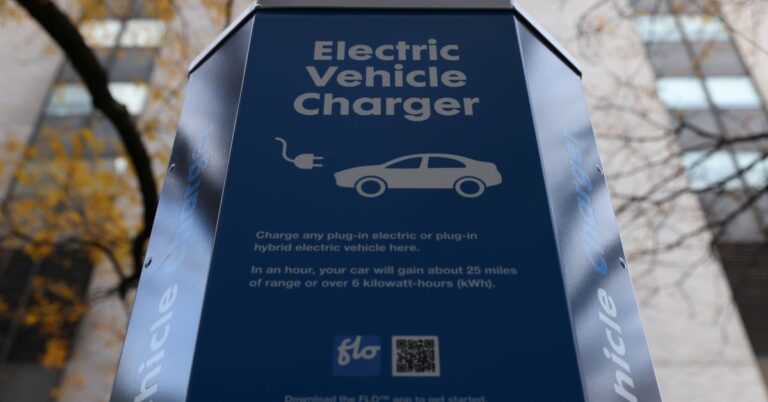WASHINGTON, April 10 (Reuters) – The US Energy Department (DOE) proposed on Monday to reduce the mileage ratings of electric vehicles (EVs) to meet government fuel economy requirements, a move that could force automaker to sell more low-emission cars or improve conventional models.
The DOE wants to significantly change how it calculates the petroleum-equivalent fuel economy rating for electric and plug-in electric hybrids for use in the National Highway Traffic Safety Administration (NHTSA) Corporate Average Fuel Economy (CAFE) program.
The current system has not been updated for more than two decades.
“Encouraging the adoption of EVs may reduce gasoline consumption but giving too much credit for that adoption may lead to an increase in net gasoline use because it allows lower fuel economy in conventional vehicles, which represent the majority of vehicles sold,” DOE said in its proposed regulation.
Miles Per Gallon equivalent (MPGe) ratings are determined by using values for national electricity, petroleum generation and distribution efficiency and driving patterns.
Environmental groups note that fuel economy ratings for EVs are higher for determining CAFE compliance than those listed by the government consumer. fueleconomy.gov website.
The Alliance for Automotive Innovation, which represents major automakers, warned last year that lowering the rates could have far-reaching implications and stifle EV adoption.
The group said Monday that it was unclear how the DOE’s proposed calculation would be incorporated into future CAFE standards.
A Volkswagen (VOWG_p.DE) ID.4 EV with a current 380.6 MPGe under CAFE would get 107.4 MPGe under the DOE proposal, while a Ford (FN) F-150 EV would drop from 237.1 to 67.1 MPGe and Chrysler Pacifica plug-in hybrid dropped from 88.2 to 59.5 MPGe.
The Natural Resources Defense Council and Sierra Club petitioned for the change in 2021, arguing that “the excessively high imputed fuel economy values for EVs mean that a relatively small number of EVs are mathematically warranted compliance without significant improvements in automakers’ real-world average fuel economy. ‘ general fleets.”
Tesla ( TSLA.O ) supported the petition by environmental groups.
The Environmental Protection Agency on Wednesday will propose new rules to spur sweeping cuts in vehicle emissions that will push automakers toward a big boost in electric vehicle sales, sources told Reuters on last week.
The 2027 to 2032 model year pollution cuts are expected to result in at least half of the new US vehicle fleet by 2030 being electric or plug-in hybrids, the sources said, in line with the goal outlined by President Joe Biden in 2021.
NHTSA is expected to soon propose similar new stringent CAFE requirements. In 2022, NHTSA strongly strengthened CAFE standards for vehicles, reversing former President Donald Trump’s rollback.
Automakers buy credits or pay fines if they don’t meet CAFE requirements. Stellantis ( STLAM.MI ), then known as Fiat Chrysler, paid $152.3 million in total CAFE fines for 2016 and 2017 and faces additional civil penalties. By 2022, NHTSA will more than double CAFE penalties.
Reporting by David Shepardson; Editing by Jamie Freed
Our Standards: The Thomson Reuters Trust Principles.
